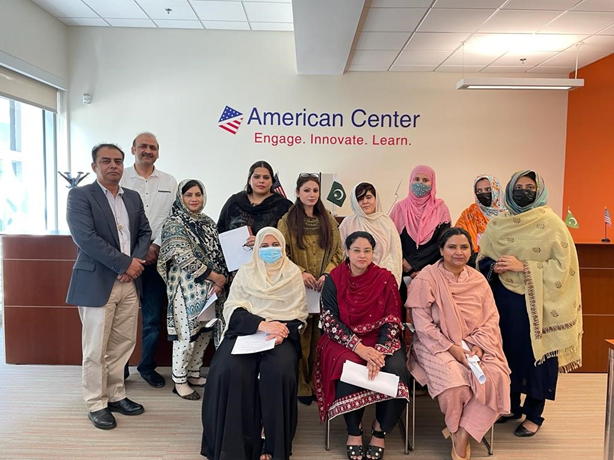The Office of International Programs at the University of Nebraska at Omaha (UNO), University of Nebraska-Lincoln (UNL), and the University of Nebraska Medical Center (UNMC) help prepare women’s universities in Pakistan to better teach, conduct research, and develop women environmental science practitioners who will empower a new generation of women-led environmental efforts and work to mitigate the impacts of climate change in Pakistan. This project of $500,000 is funded by the U.S. Department of State.
The program’s goal is to build the capacity of Pakistani society to combat and mitigate climate change through a U.S.-Pakistan university partnership that explores curriculum development, environmental education, student and faculty engagement, research, and data sharing.
This grant will enhance climate change pedagogy and research at Pakistani women-only higher education institutions through virtual and in-person exchanges with a U.S. university. It should boost the capacity of the Pakistani university to build a pipeline of women leadership in environmentalism and climate change.
This project will run through Oct. 2024, culminating in enhancing the capacity of eighteen faculty at a women university or universities to teach, conduct research, and develop environment and climate change curricula and promote environmental literacy, training, and education on climate change for approximately 200 U.S. and Pakistani students through virtual program and Distance Learning Modules. This project will implement exchange program(s) to enhance knowledge-sharing (travel conditions permitting).
The project will foster young women’s participation and leadership on climate issues and establish a mentorship program between U.S. and Pakistani participants that promotes network/linkages with experts, leaders, practitioners, and activists from diverse backgrounds. UNO’s Center for Afghanistan Studies Director, Sher Jan Ahmadzai serves as the principal investigator of this project.

Objectives for the Project
- Implement an academic exchange program to enhance knowledge sharing and the capacity of 16 women faculty at SBBWU to teach, conduct research, and develop curriculum in the fields of environmental sciences and climate change.
- Establish a mentorship program between US and Pakistani participants that promotes linkages and networking with experts, leaders, practitioners, and activists of diverse backgrounds to foster young women’s participation and leadership on climate issues.
- Use real-life case studies to develop and implement action plans that will address pressing environmental issues such as pollution, water scarcity, and climate change in Pakistan.
- Offer cultural experiences that will expose participants to a diverse cross-section of US citizens; provide participants insight into American values, culture, and way of life; and present participants with opportunities to speak to Americans about their home country.
- Introduce participants to the UNO-Pakistan Academic Exchange webpage, the DOS International Exchange Alumni space, and social networking sites so that upon their return home they can access information online; maintain contact with other program alumni, UNO students and faculty, and community members; and continue collaborations on joint projects.
- Promote environmental literacy, training, and education on climate change for approximately 200 US and Pakistani students through follow-on programming.
- Encourage participants to identify pathways and opportunities to share their US experiences, awareness of cultural diversity, and mutual understanding with students, other faculty and scholars, families, and community members.
- Foster increased collaborations and sustained linkages among UNO and Pakistani institutions for women and encourage interprovincial collaboration throughout follow-on and beyond.

Project Components
The project has the following two components:
- Academic Component
The UNO DNGFE program will organize the program content into six academic components providing a comprehensive program to cover all aspects of the project goals and objectives. The academic program will span for 18 months for 16 Pakistani faculty and 200 US and Pakistan students.
- Cultural Program
The cultural component will provide participants with first-hand experiences with the lessons learned in academic classes. Cultural activities will provide participants with deeper contextual knowledge of US democracy, attitudes, and values as well as opportunities to consider issues of race, institutional structure, socioeconomic status, and community support mechanisms.
Participants will have opportunities to experience Midwest American culture, see many of Omaha’s hallmarks, and explore local history in a variety of ways.